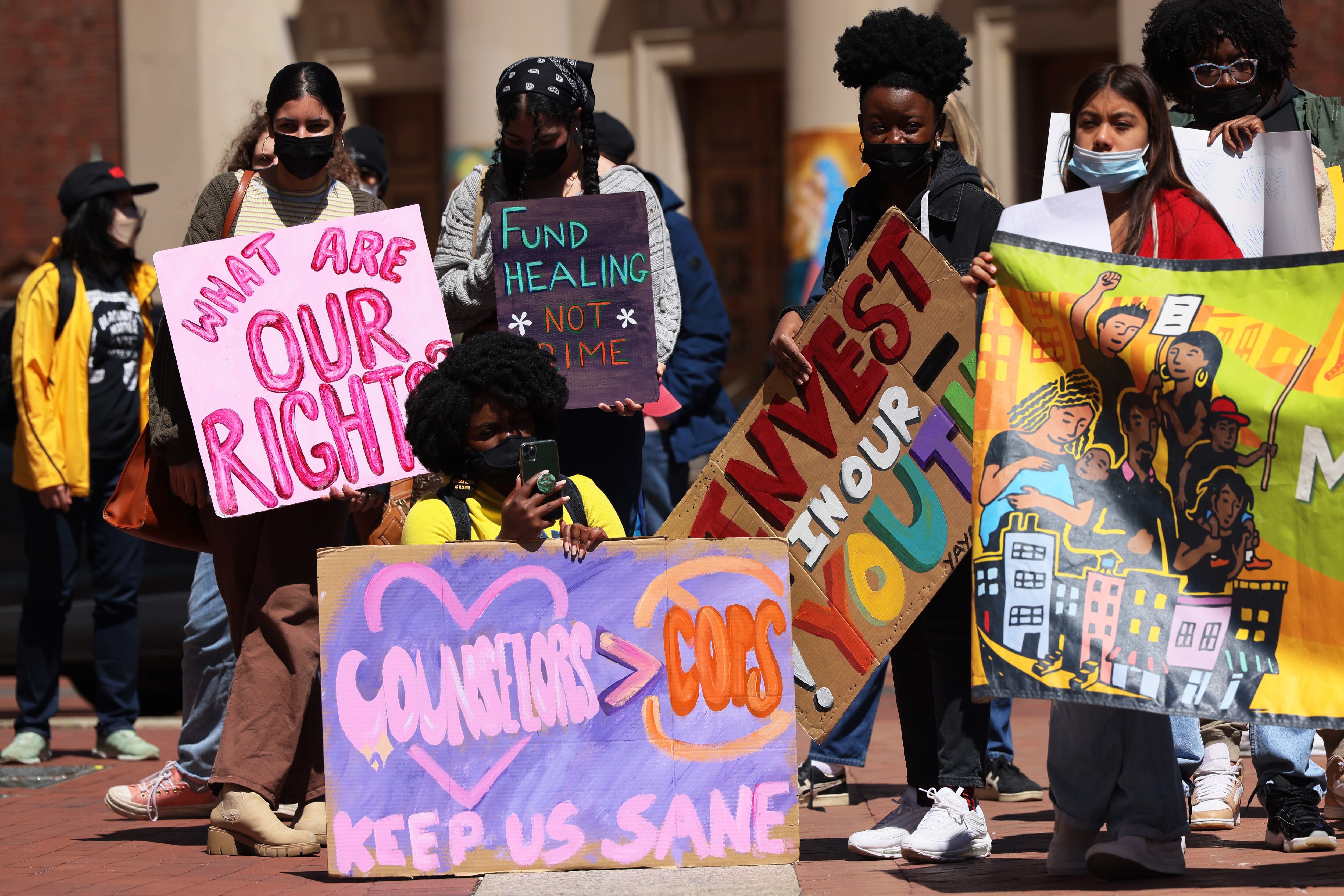New York City issued significantly fewer suspensions last school year compared with pre-pandemic levels, according to figures released Thursday, even as many students were re-acclimating to in-person learning for the first time since buildings shuttered in 2020.
Educators handed out 25,117 suspensions last year, down 23% since the 2018-19 school year, the most recent pre-pandemic year.
Principal suspensions, which last five days or fewer and are typically served in school, fell 18% last year. More serious superintendent suspensions — which stretch longer than five days, and are served at outside suspension sites — declined by 37%. (Superintendent suspensions can technically last an entire year but have been limited to 20 days in most cases since 2019.)
Including last year’s drop, suspensions have plunged 64% over the past decade. The dramatic reductions have been cheered by discipline advocates who have pushed for reform, as research shows that suspensions can negatively affect student test scores and lower their odds of graduating.
The declines surprised some observers and experts who expected an uptick in student behavior issues last year, given increased stress, mental health issues, and the isolation many children experienced during the pandemic.
Crime ticked up in New York City, and there was a significant jump in the number of weapons confiscated at schools last year, in part for self defense during commutes. But in addition to the decline in suspensions, reports of fights and altercations in schools also fell significantly last year, as did incidents of schools calling 911 to respond to students in emotional distress, city data show.
“The expectation going in was that we were going to see a lot of disciplinary issues partly because of all the trauma that everyone went through during lockdown,” said Nelson Mar, an attorney at Bronx Legal Services, which represents students who have been suspended. The decline, he said, is “encouraging news.”
Still, the new suspension figures show that troubling disparities remain. Nearly 44% of all suspensions were issued to Black students and 40% went to students with disabilities, groups that represent closer to a quarter or fewer of the city’s students.
White and Asian American students were each dramatically less likely to be suspended compared with their shares of the student population. Latino students received 39% of all suspensions closer to their proportion of the public school population. The suspension data does not include charter schools.
It is difficult to know exactly what caused the overall decline in suspensions — even as some school districts across the country removed students from school more frequently — but there are several possibilities that could help explain the decrease.
Schools may have been reluctant to suspend students after more than a year of disrupted learning, fearing that removing students from classrooms could set them back even further. Educators may also have relied on counseling or restorative justice, which prioritizes talking through conflicts rather than removing students from their classrooms — approaches that have gained traction. Thanks to federal relief funding, schools also generally had more resources on hand.
Suzan Sumer, an education department spokesperson, said in a statement that the reduction in suspensions was “made possible by giving every student access to a guidance counselor, social worker, or school-based mental health clinic and offering all staff the training needed to identify students who need help and quickly provide them resources before a crisis develops.” She pointed to training on becoming “trauma responsive” that was available to all staff.
Another possibility is that there were simply fewer students to suspend. Enrollment has dropped sharply during the pandemic. More than 150,000 students tested positive for COVID, leading to missed school days. And chronic absenteeism spiked, with 41% of students missing at least 10% of the school year.
The decline in suspensions continues a yearslong trend, as former Mayor Bill de Blasio championed changes to the discipline code, including limiting suspensions for young children, discouraging their use for more subjective infractions like “insubordination,” and requiring that schools receive approval from a central office in many cases. Some educators have criticized those policies for not providing training in alternative approaches quickly enough and tying their hands in the meantime.
Schools Chancellor David Banks’ approach to school discipline policies has yet to fully crystalize. Although Banks previously said he does not favor “zero tolerance” approaches, advocates criticized his administration for considering cuts to restorative justice programs. Banks ultimately promised to keep that money in place.
For his part, Mar said he’ll be watching closely to see how the new administration approaches student discipline policy.
“That’s a question that cannot be answered now,” Mar said. “It’s still very early in this administration.”
Alex Zimmerman is a reporter for Chalkbeat New York, covering NYC public schools. Contact Alex at azimmerman@chalkbeat.org.





